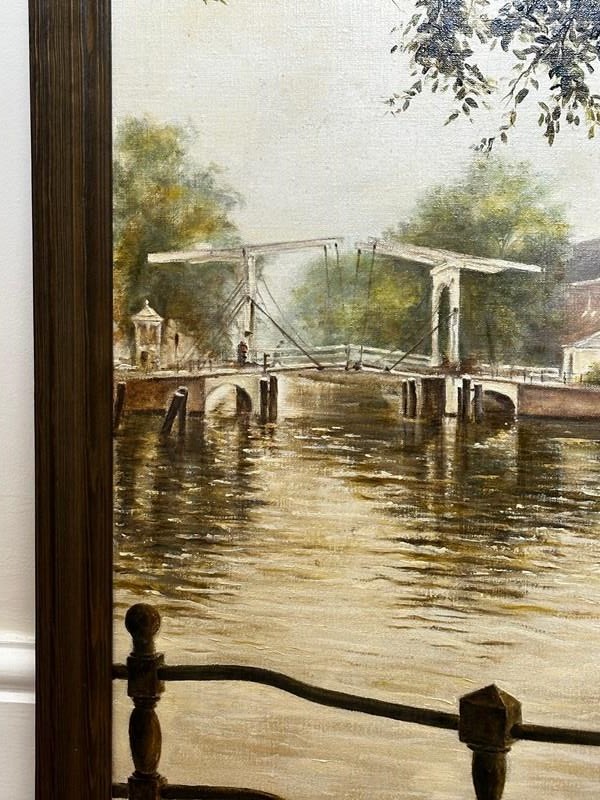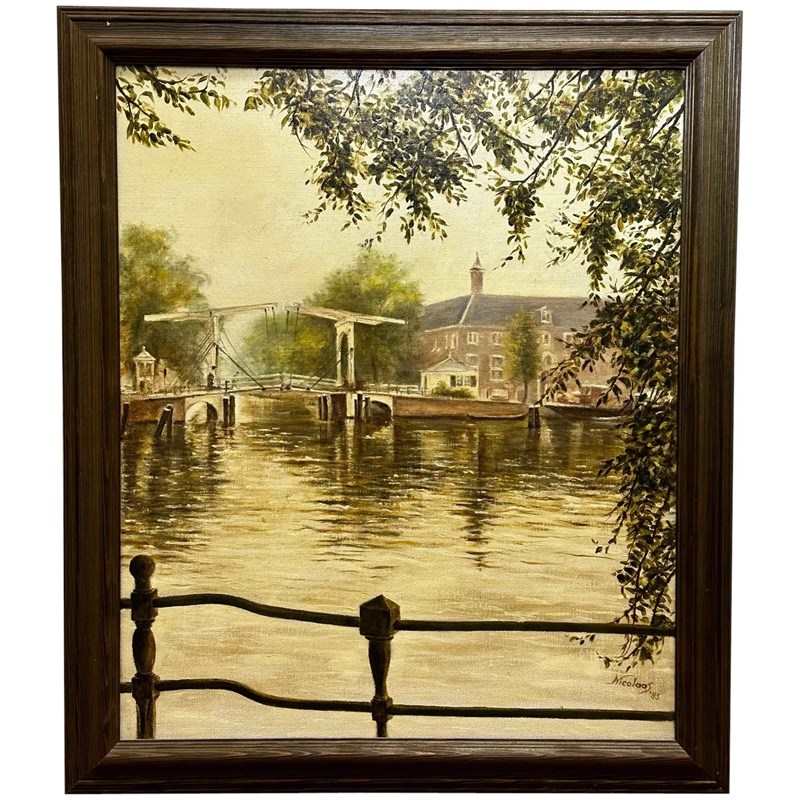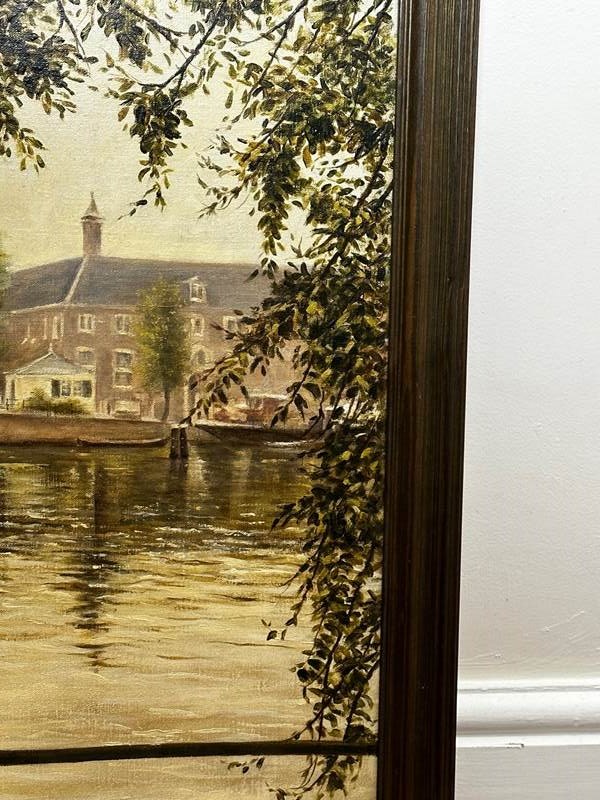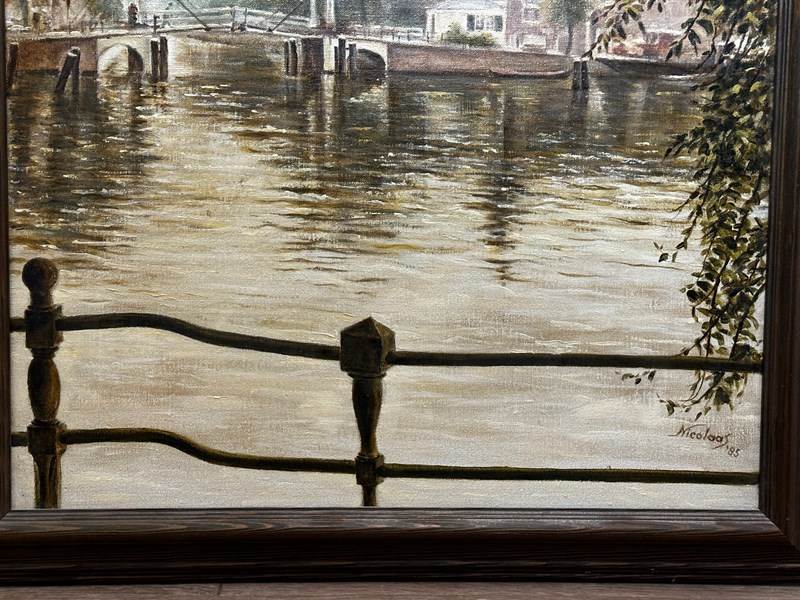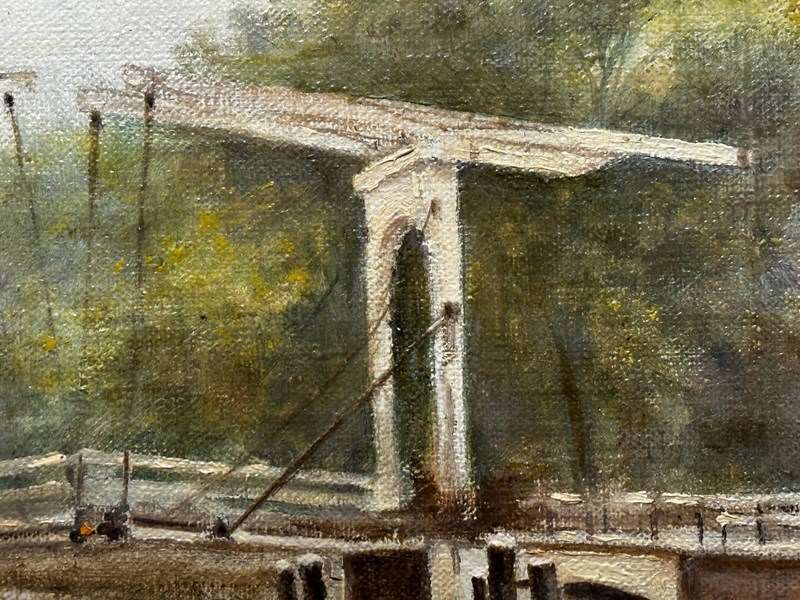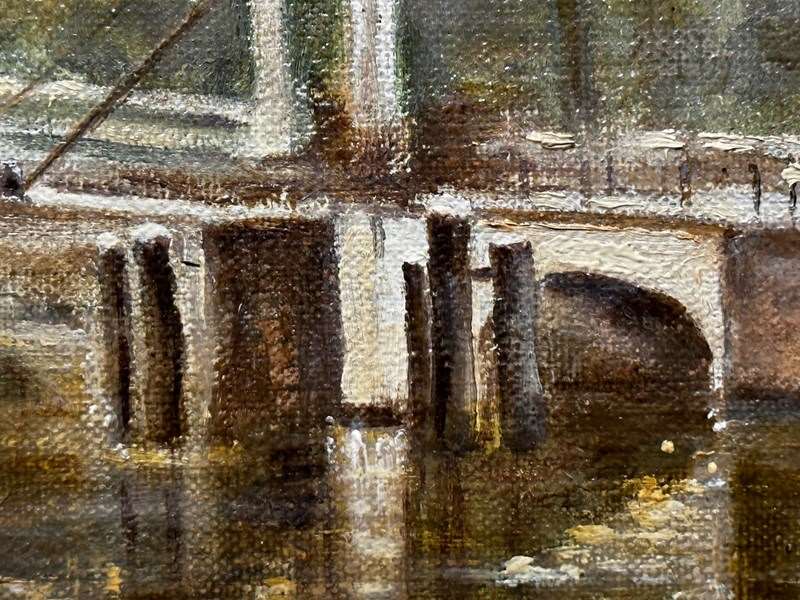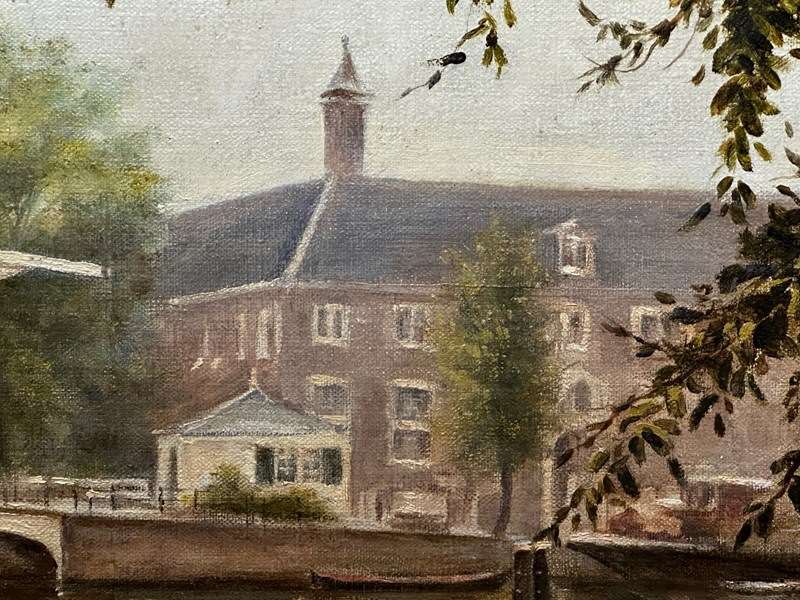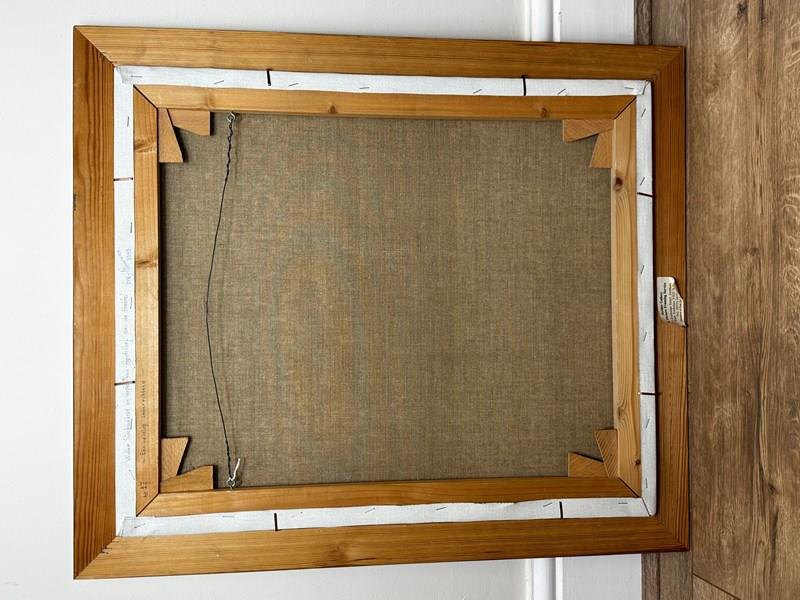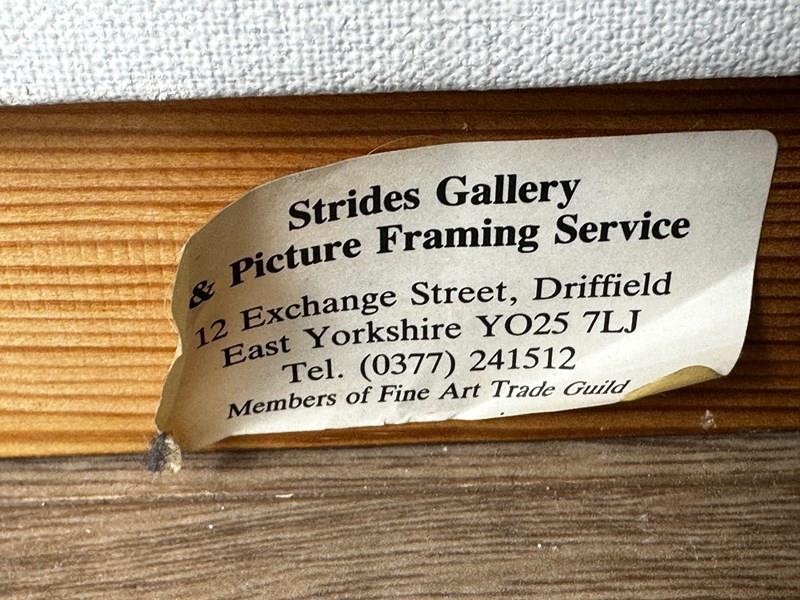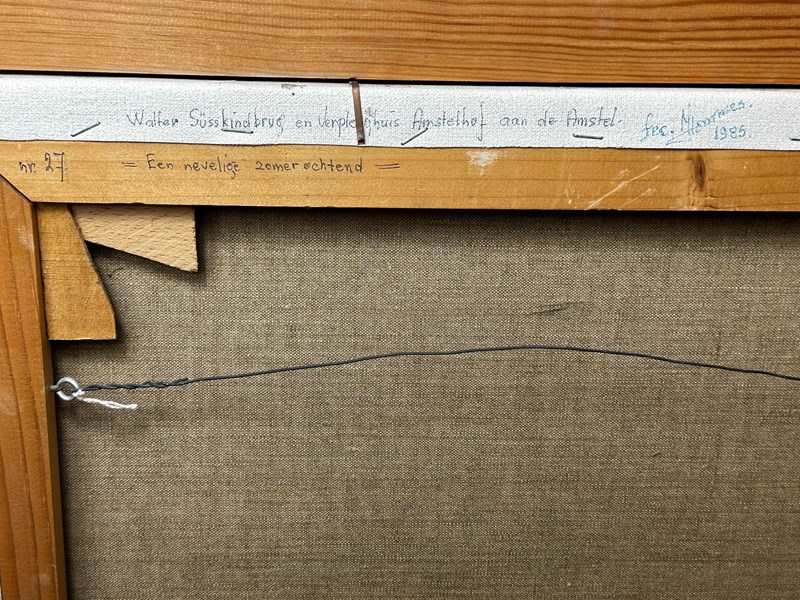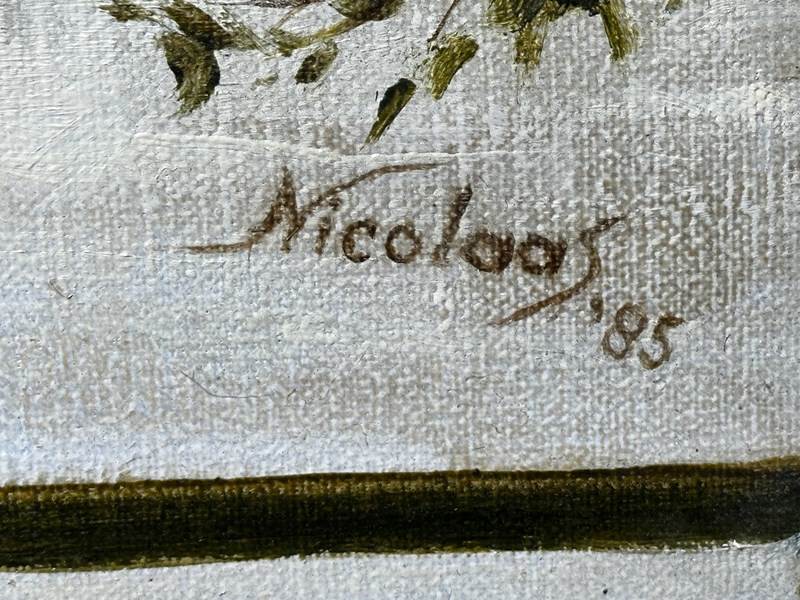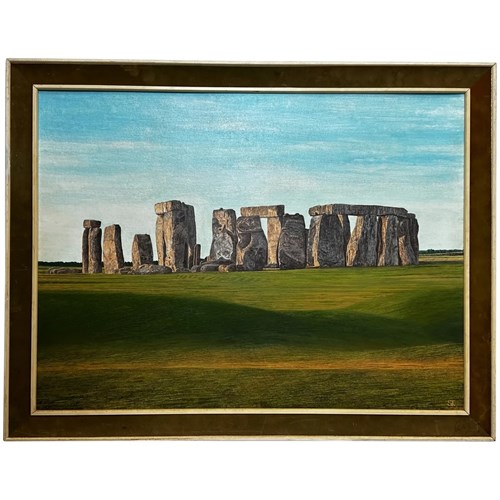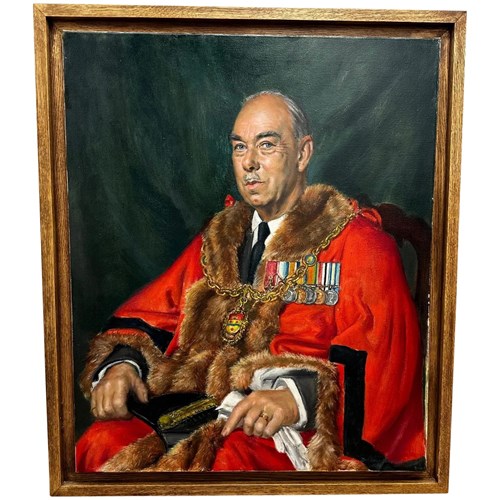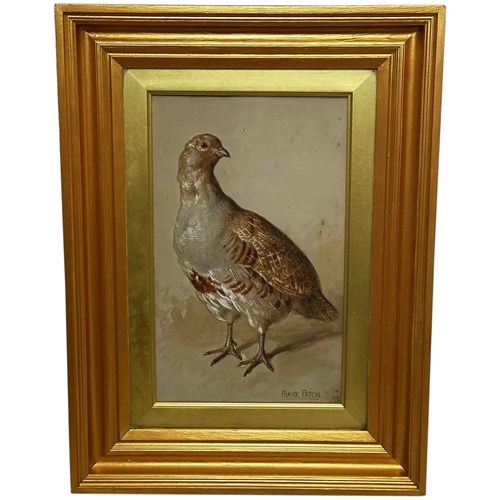Dutch Oil Painting Walter Suskind Bridge Misty Summer Morning Amsterdam
Stock No
CAC00023
2023
- £2,400.00
- €2,844 Euro
- $3,084 US Dollar
Questions about this item?
Like this item?
Item Description
This beautiful Dutch oil painting by Walter Suskind captures a dreamy summer morning in Amsterdam. The drawbridge and misty atmosphere evoke a peaceful and idyllic scene. Soothe the soul and add a stunning piece of art to your collection.
Title is inscribed verso "Een nevelige zomerochtend" Walter Suskindbrug en verpleeghuis amstelhof aan de Amstel. Translated from Dutch which means a misty summer morning at Walter Suskind Bridge & nursing home in Amsterdam.
Subject beautiful cityscape marine view showing the famous city landmark Walter Suskind Bridge over the canal. With calm rippling water below, flanked on either side large green trees, on the right is the nursing home, moored at the side is a rowing boat just beyond a larger boat is travelling by, around the top and side edges are large tree branches with dark green leaf foliage. At the bottom is a curved iron railing, above with overcast sky.
A bridge has been on this spot for centuries, but the current name dates from 1972. The draw bridge is named after Walter Süskind, who, together with Felix Halverstad, Lau Mazirel and Piet Meerburg, allowed Jews and Jewish children to escape from the Hollandsche Schouwburg during the Nazi regime and the nursery opposite.
Walter Süskind (29 October 1906 – 28 February 1945) was a German Jew who helped about 600 Jewish children escape the Holocaust. He was a member of the Jewish Council of Amsterdam [nl; de] (Joodsche Raad or Judenrat) during the Second World War.
Süskind was born in Lüdenscheid in Germany as the first child of Hermann Süskind and Frieda Kessler. He had two younger brothers, Karl Süskind (1908) and Alfred Süskind (1911).
Süskind initially worked as a manager of a margarine factory in Germany. In March 1938, he fled to the Netherlands with the intention of emigrating to the United States, because of the persecution of Jews. From 1942 until his deportation to Westerbork, he lived at Nieuwe Prinsengracht 51 in the center of Amsterdam with his wife Johanna Natt (1 November 1906 – 1944) and their daughter Yvonne Süskind. During the Second World War he became involved in helping children escape the Holocaust via the nursery on the Plantage Middenlaan in Amsterdam.
Süskind worked for the Dutch Jewish council. He was the manager of the Hollandsche Schouwburg (Dutch Theater), where the Jews of Amsterdam had to report prior to their deportation to the Westerbork transit camp. In that position he could manipulate the personal data of children in particular. His close relationship with the German authorities helped him in his activities to help children escape. He especially tried to get close to the SS officer Ferdinand aus der Fünten, who was then the second man of the Central Office for Jewish Emigration in Amsterdam.
Opposite of the Hollandsche Schouwburg on the Plantage Middenlaan, there was a nursery. The Nazis put the young children there instead of in the theatre. The Jewish director of the nursery, Henriette Henriques Pimentel, together with Süskind and economist Felix Halverstad (who also worked at the Hollandsche Schouwburg), set up a system to rescue children via the nursery. Children were secretly brought to the Hervormde Kweekschool (Reformed Teacher Training College), two houses from the theater. They got there through the garden. They received help from the head of the school, Johan van Hulst.
From there, the children went into a backpack, shopping bag or laundry basket to be transported to Limburg and Friesland by train and tram, often with help from the Utrechts Kindercomité (Utrecht Children's Committee) of Piet Meerburg [nl] and the NV, a secret organization that managed to organize many addresses in Limburg. Süskind and Felix Halverstad ensured that these children were not registered and removed their names from the records of the theater. Thanks to this plan, about 600 children were saved.
In 1944, Süskind, his wife and his daughter were sent to the Westerbork transit camp. Due to his good relations with the SS leadership of the Dutch Theater, he was allowed to return to Amsterdam, but he eventually went back to his family in Westerbork. He also wanted to help people escape from the transit camp, but failed. His wife and daughter later died at the camp, and he himself died on 28 February 1945 at an unknown location in central Europe during the death marches.
Oil on canvas
Origin from the Netherlands.
A nice easy to display size with the frame being 60 cm wide and 69.5 cm high.
Signed lower corner by the Dutch artist Nicolaas.
Set in a traditional frame.
Circa late 20th century dated 1985.
Provenance gallery label verso Strides Gallery in Driffield Yorkshire Members of Fine Art Guild.
With hanging thread on the back ready for immediate home wall display.
Condition report.
Offered in fine used condition.
Front painting surface in good overall order. Having some scuffs, foxing stains in places. Set in original frame which has general wear, dust, scuffs, some chips losses commensurate with usage & age.
International buyers worldwide shipping is available please ask for a quote.
Size of frame
High (69.5 cm)
Wide (60 cm)
Depth thickness of frame (2.5 cm)
Item Info
Seller
Seller Location
Chester, Cheshire
Item Dimensions
H: 69.5cm W: 60cm D: 2.5cm
Period
1985
Item Location
United Kingdom
Seller Location
Chester, Cheshire
Item Location
United Kingdom
Seller Contact No
+44 (0)7494 763382
More from CHESHIRE ANTIQUES CONSULTANT


